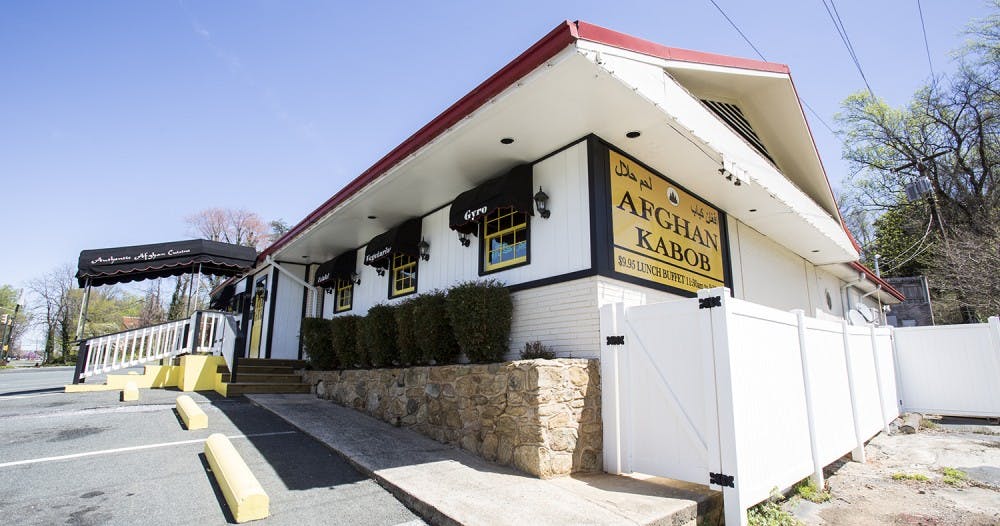When Mirahmad Mirzai told his friends about his plans to open an Afghan restaurant in Charlottesville in 2009, they were skeptical. But as the Muslim community in Charlottesville community has grown, so too has the popularity of Mirzai’s restaurant Afghan Kabob.
Mirzai first immigrated to New York City in 1983. He got his first job two weeks later cleaning a restaurant.
“I started to work on a grill, making hamburgers, and then I became a pizza man, and I just kept on going, until 1987 I opened my first restaurant myself in the city of New York,” Mirzai said.
He was motivated by his desire to one day open a restaurant, but he said his path was difficult because he was an immigrant.
“When you come as a newcomer in the states you start from below,” Mirzai said.
Mirzai said he wasn’t discouraged by the prospect of having to work his way up and found New York City to be a great place to get his start.
“New York City was very welcoming to immigrants,” Mirzai said. “And that’s how you start your life.”
Running his first restaurant equipped him with the culinary skill set he would eventually take with him to Charlottesville.
“I hired a chef from Afghanistan who actually was running the place, and I learned from him a lot,” Mirzai said. “Also, I learned home-cooking from my mom — she was a very good cook.”
His favorite dish is his mother’s specialty, the pumpkin curry, which is served at Afghan Kabob.
He decided to leave New York when he wanted to settle down. Charlottesville, he realized, would be a more fitting location to start a family and raise kids. He first moved to Northern Virginia before settling in Charlottesville. In both places he found there was a lack of authentic Middle Eastern food.
His friends were uncertain he would find success in a location with considerably less diversity than the liberal bastion he hailed from. A small college town did not seem to be the ideal place for an Afghan restaurant.
“But it’s the reverse. Actually I did very well because people like to have a different taste of food, different flavors,” Mirzai said.
It was the unique flavors that drew people in when they didn’t want the normal pizza or cheeseburgers that they could eat anywhere else, he said.
Afghan Kabob opened in 2009. Since then, the increasing number of refugees in Charlottesville has provided a continuing flow of new people to the city who are looking for a place to eat authentic Middle Eastern food.
“Now we have a very large Muslim community here, I’d say, but very diverse — from Iraq, Syria, Afghanistan and elsewhere. So this little city is becoming more like northern Virginia now, [with] the diversity,” Mirzai said.
The restaurant works with the International Rescue Committee to provide refugees who have just arrived with their first meal.
“Whenever there’s a newcomer that arrives through IRC, IRC calls me up. Their first meal is on me, whenever they come in,” Mirzai said. “[The IRC] really are helping the new settlers to settle and help them with their housing and all of that.”
Afghan Kabob provides the option of authentic Afghan food to the Muslim community as well as many students from the University. Mirzai estimates 25 to 30 percent of the people who come are students from the University.
“It’s packed here after basketball games, sometimes before basketball games we’re packed,” Mirzai said.
The place is also appealing to some because it has a lot of options for vegetarians. “We do have a large menu for vegetarians, and a lot of people appreciate that,” Mirzai said.
Afghan Kabob offers a 10 percent discount to University students, and often caters for University events.







